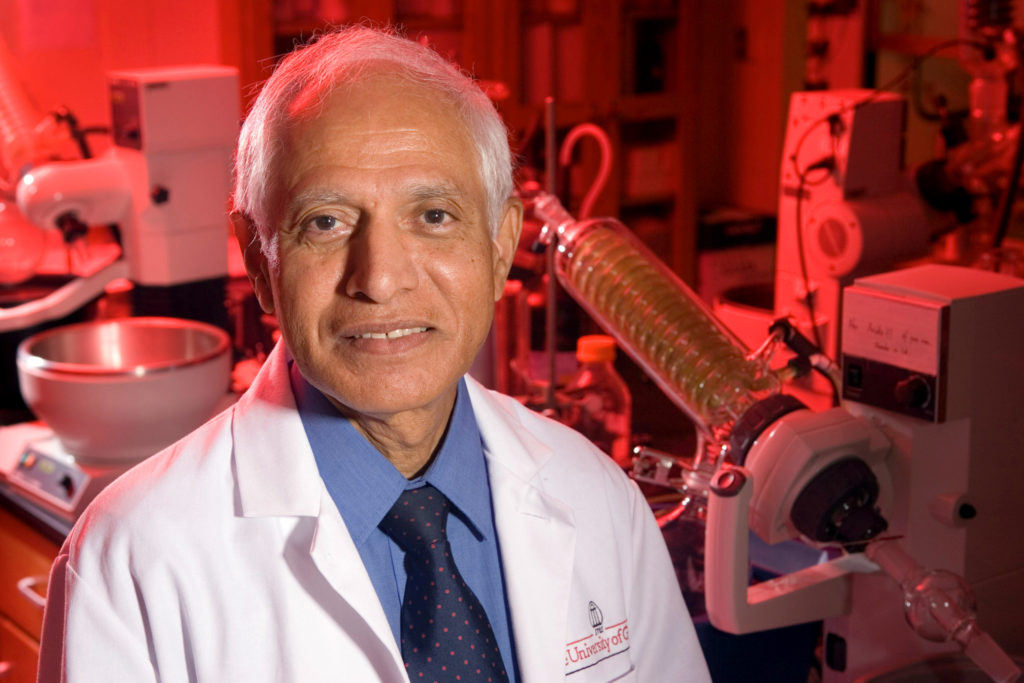A new Center for Drug Discovery at the university will promote research aimed at finding chemical and biological agents to combat infectious diseases and cancer.
The University Council, at its Feb. 3 meeting, approved creation of the center, which will be in the College of Pharmacy. Vasu Nair, Georgia Research Alliance Eminent Scholar and an internationally recognized authority in the field of drug discovery, will head the unit.
The center will foster interdisciplinary research by bringing together scientists from a number of areas at UGA as well as the Medical College of Georgia, Emory University, Georgia State University and Georgia Tech. Nair has received a number of research grants from the National Institutes of Health in the area of drug discovery, and the College of Pharmacy has patent funds to cover administrative costs of establishing the center, so it will not initially require additional funding or personnel.
Research in the center will focus on finding therapeutic agents to help fight infectious diseases caused by viruses and certain kinds of cancer. The center will work closely with other UGA units involved in medical research, including the Biomedical and Health Sciences Institute, the Cancer Center and the Complex Carbohydrate Research Center.
The center is expected to attract additional research support, including a National Institutes of Health training grant for drug discovery, and results of the center’s work could produce economic benefits for the state in the areas of pharmaceuticals and related biotechnology.
In other action, the University Council approved a request from the College of Pharmacy to award a graduate certificate in pharmaceutical and biomedical regulatory affairs and a request from the Grady College of Journalism and Mass Communication to add a non-thesis option for the master’s degree in journalism and mass communication.
Arnett C. Mace Jr., senior vice president for academic affairs and provost, reported to the council on the formation of a new organization composed of the presidents, chancellors and provosts at universities in the Southeastern Conference. Mace said the group, named the Southeastern Conference Academic Consortium, will work on collaborative ways to strengthen teaching, research and service at SEC schools.
Mace, who is serving as the first chair of the consortium, said the group is initially working on several areas, including libraries, study-abroad programs, minority recruitment and ways to help faculty move into administrative positions. Other areas of interest are possible joint arrangements between schools for purchasing and research.
